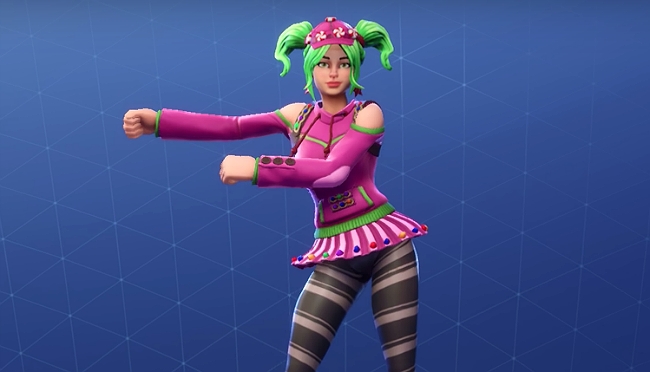
Epic Games has put some very familiar dances into its wildly popular Fortnite but those that are trying to get royalties from their moves are having trouble collecting. Copyright law in the United States is as fascinating as it is complicated, and the digital realm has only added to the layers of property law and how they apply to video games.
But those trying to collect on their dances popping up in video games have had trouble getting the law on their side. A number of people have filed lawsuits about copyright infringement over their dances appearing, unlicensed, in video game titles. Alfonso Ribeiro famously sued Fortnite and NBA 2K over his “Carlton Dance” appearing in video games, and others like the inventor of “Flossing” have added their case to the legal ranks.
But Epic has fought back, claiming that copyright law does not apply to dance steps. According to Variety, Epic has claimed in legal documents that its dances are not subject to copyright, and even if they did their animations are different than those in question.
“No one can own a dance step,” according to the court document. “Copyright law is clear that individual dance steps and simple dance routines are not protected by copyright, but rather are building blocks of free expression, which are in the public domain for choreographers, dancers, and the general public to use, perform, and enjoy.”
Epic says that its “Swipe It” dance is faster than the “Milly Rock,” which the copyright lawsuit in this particular case is over.
“Similarly, even focusing solely on the Dance Step itself, it is different from Swipe It,” the motion explained. “As shown by the accompanying video clip, the Dance Step consists of a side step to the right while swinging the left arm horizontally across the chest to the right, and then reversing the same movement on the other side … By contrast, as shown in another video clip, Swipe It consists of (1) varying arm movements, sometimes using a straight, horizontal arc across the chest, and other times starting below the hips and then traveling in a diagonal arc across the body, up to the shoulder, while pivoting side to side on the balls and heels of the feet, (2) a wind up of the right arm before swiping, and (3) a rolling motion of the hands and forearms between swipes.”
It’s actually pretty hilarious to see a dance explained in a legal sense, but there is actually some good news for Epic on the legal front. On Thursday, The Hollywood Reporter noted that Riberio’s copyright claim for the Carlton Dance will not be accepted. The report stated that a specialist in the copyright office’s performing arts division, Saskia Florence, said the copyright claim must be refused because it was “a simple dance routine.”
“The dancer sways their hips as they step from side to side, while swinging their arms in an exaggerated manner,” wrote Florence. “In the second dance step, the dancer takes two steps to each side while opening and closing their legs and their arms in unison. In the final step, the dancer’s feet are still and they lower one hand from above their head to the middle of their chest while fluttering their fingers. The combination of these three dance steps is a simple routine that is not registrable as a choreographic work.”
THR notes that Take Two, which makes NBA 2K, has jumped on this copyright rejection to claim that these lawsuits are frivolous. This doesn’t settle any intellectual property laws about tattoos, though, which still seems to be up in the air. As is the final say on whether dances can be copyrighted and if Epic and Take Two did anything wrong here.
